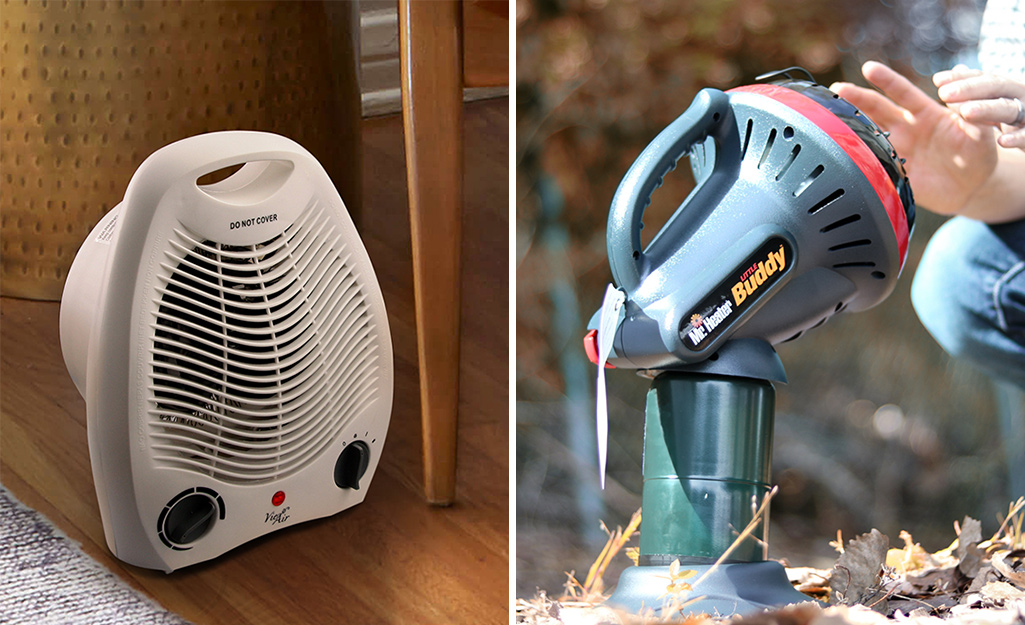1 Source Portable Air Can Be Fun For Anyone
1 Source Portable Air Can Be Fun For Anyone
Blog Article
The Basic Principles Of 1 Source Portable Air
Table of ContentsFascination About 1 Source Portable AirWhat Does 1 Source Portable Air Mean?Some Of 1 Source Portable AirNot known Facts About 1 Source Portable Air9 Simple Techniques For 1 Source Portable Air
Running costs are based on a power rate of 40c/kWh. The costs for 3 months' use in winter months are based upon 500 hours use, or approximately 6 hours per day for three months. Maximum heat output is based on the maximum wattage of the models we've tested (we concentrate on higher wattage heaters).
On standard, tiny follower heaters are much less costly to buy, however can have higher running costs. Oil column heating systems will certainly be the most inexpensive on the market to run (on average) yet just by a narrow margin ahead of convection heating units (like panel and micathermic panels).
Our 1 Source Portable Air Ideas
If you have a reversible ceiling fan, it'll aid distribute the heat around the space much more equally. The models in our electrical heaters examination normally range in cost from well under $100 to over $900, but we've located a higher cost doesn't constantly imply far better performance. A number of pricey heating units have stopped working to impress our testers, while some more affordable models create surprisingly great buys.
As the name suggests, they radiate warm from a red-hot heating element (so the family will have to take turns sitting in front of it). Radiant heaters are fairly low-cost.
Radiant heaters generally set you back in between $20 and $200. Oil-filled column heating units don't actually melt oil they utilize electrical power to heat the oil that's secured inside their columns or 'fins'.
What Does 1 Source Portable Air Mean?
Some column heating units aren't even oil-filled however instead utilize other material or home heating innovation to function the exact same means - 1 Source Portable Air. The danger of fire with an oil column heating system is low contrasted to various other heating unit types, yet never no. Oil heaters don't have actually exposed aspects like glowing heaters do, and their surface area temperature level is lower than several other heating unit kinds (their large area offsets it)
Oil column heating systems won't blow up, and while they do not burn their oil to produce warm, it's still combustible, so there is a fire risk if the oil leaks, if the heating unit tips over and leaks, or if flammable things or textile enter into get in touch with or drop on the heating system. You should exercise the very same level of care with oil heaters as for other heating unit kinds, and never ever hang towels or garments over one to dry them use a drying rack instead, at least one metre away.
Column heating units are specifically valuable in areas where they'll be activated for long periods of time or where they'll operate unattended, such as overnight in a bedroom. The surfaces you're likely to touch on a column heater don't get as hot as other kinds of electrical heaters. You can use a ceiling follower on really reduced rate to aid the column heating system to distribute the heat faster and more equally.
If there's very little air motion (as an example, if you're sitting analysis or enjoying TV), the heat might not be dispersed evenly. Oil-filled column heating systems usually set you back between $50 and $450. Convection and panel heaters attract chilly air over an electric burner. The heated air then leaves the heating unit and climbs in the direction of the ceiling, while cooler air relocate to replace it.
The smart Trick of 1 Source Portable Air That Nobody is Talking About

Convection and panel heaters are more mobile than their oil-filled column heating system equivalents since they're considerably lighter. Like a column heating system, you can make use of a ceiling fan on really reduced rate to disperse the warmth faster and a lot more uniformly.

Some Known Details About 1 Source Portable Air
Follower heating units are commonly smaller sized and much more portable than other electric heating systems. click here to find out more They additionally are available in the type of tower fan heaters, which can be better for dispersing heat around larger spaces due to their taller account. They can warm the air in a space much more quickly, uniformly and quickly than a few other heating system kinds.
They can be rather noisy with the fan on full power, however are usually fairly quiet at reduced follower speeds. Follower heaters (ceramic or otherwise) usually cost between $60 and $900. Ceramic follower heaters aren't always any type of different in rate to non-ceramic models. A relatively recent participant into the customer market, infrared heating units heat the area like the see here now sun heats your face (without the UV rays so no threat of skin cancer). 1 Source Portable Air.
Report this page